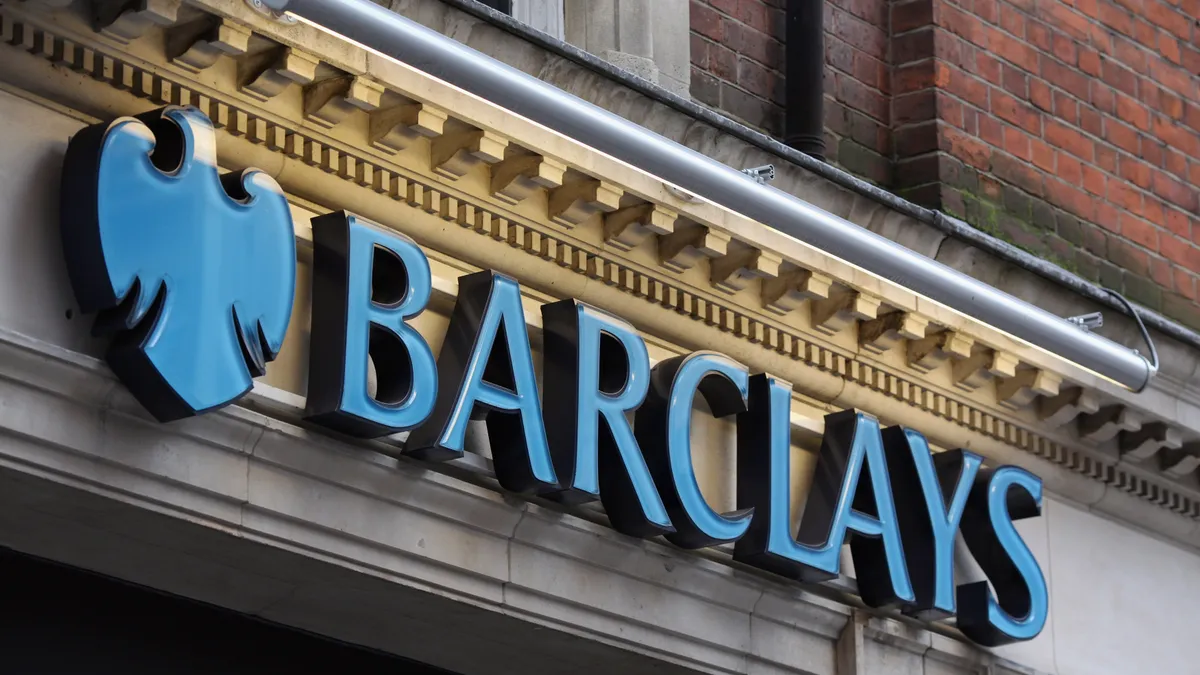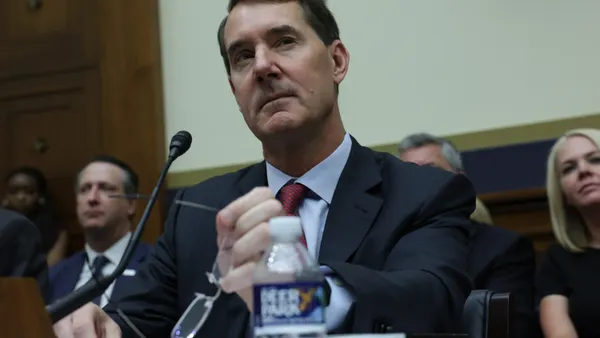If the banking industry averages one nine-figure error per year, consider Barclays a front-runner for 2022’s.
The bank said Monday it would delay, until the second quarter, the start of a previously announced £1 billion share-buyback program after taking a loss of roughly £450 million ($591 million).
Barclays registered with the Securities and Exchange Commission (SEC) in August 2019 to sell up to $20.8 billion in exchange-traded notes (ETNs) tied to stock volatility and oil. But it exceeded that limit by $15.2 billion — nearly 75% — and abruptly halted share creation in those two products two weeks ago.
“This suspension is being imposed because Barclays does not currently have sufficient issuance capacity to support further sales from inventory and any further issuances of the ETNs,” the bank said March 14, according to the Financial Times.
Monday's statement from the bank does not identify the ETNs by name.
Barclays now must buy the notes at their original purchase price. And the projected loss may be a conservative estimate: The bank’s calculation is net of tax.
“Barclays has commissioned an independent review of the facts and circumstances relating to this matter including, among other things, the control environment related to such issuances,” the bank said. “Separately, regulatory authorities are conducting inquiries and making requests for information.”
The SEC is said to be among the investigating regulators, the Financial Times reported, citing a source who also said the bank had only discovered the error March 14 but was looking into why it went undetected for so long.
“It looks like an operational or legal failure,” Jerome Legras, managing partner at Axiom Alternative Investments, told The Wall Street Journal. “It’s hard to believe they would do such a stupid thing.”
Barclays wouldn’t be alone in making an error that strips tens or even hundreds of millions of dollars from its bottom line. A Citi employee in 2020 manually adjusted a payoff amount on a loan owed by cosmetics company Revlon, such that the bank paid the loan in full with interest years ahead of schedule with its own money rather than Revlon’s.
The $900 million transfer ultimately cost the bank more than half a billion dollars when a court ruled several of Revlon's creditors did not need to repay Citi. The Office of the Comptroller of the Currency (OCC) also fined the bank $400 million over persistent issues in risk management, data governance and internal controls that the errant transaction may have spotlighted.
Santander last year made its own $175 million error when it sent duplicate payments to about 75,000 British customers on behalf of 2,000 businesses that have accounts with the bank.
Barclays said the loss would push its common equity tier 1 ratio 0.14 percentage point lower — but still within the bank’s 13% to 14% target.
The gaffe also could stand as a black eye to relatively new CEO C.S. Venkatakrishnan, who served as the bank’s chief risk officer when the 2019 deal on ETNs was struck.
ETNs trade like exchange-traded funds but are debt obligations backed by a bank, leaving investors exposed to counterparty risk.
“This kind of seemingly basic error may shake confidence in the investment bank going forward,” Fahed Kunwar, an analyst at Redburn, told Bloomberg. "With a new management team in place, there are already questions on the ability of the investment bank to continue to its strong performance.”
It’s unclear when the bank will resume issuing the ETNs. Barclays said it “intends to file a new automatic shelf registration statement with the SEC as soon as practicable.”
A shelf registration allows financial institutions to issue securities without applying to regulators for approval each time.
Shore Capital analysts told investors Barclays appeared to be "tripping over its shoelaces,” according to a note seen by Reuters.











